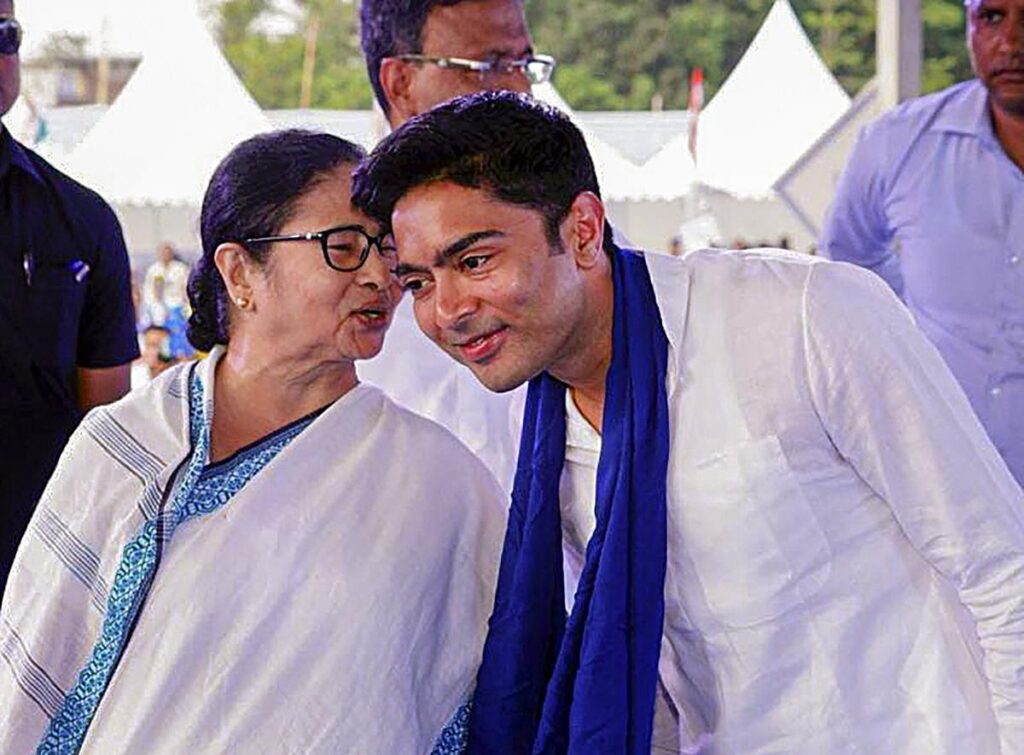Synopsis: The Trinamool Congress (TMC) has replaced MP Yusuf Pathan with party heavyweight Abhishek Banerjee for an international delegation to promote India’s anti-terrorism stance following Operation Sindoor. The switch, prompted by the Centre’s unilateral nomination of Pathan, underscores TMC’s demand for autonomy in selecting representatives, highlighting tensions in India’s multi-party diplomatic outreach.
New Delhi: The Trinamool Congress (TMC), led by West Bengal Chief Minister Mamata Banerjee, has nominated Lok Sabha MP Abhishek Banerjee to represent the party in a multi-party delegation tasked with conveying India’s zero-tolerance policy against terrorism globally, in the wake of Operation Sindoor. This decision follows the party’s rejection of the Centre’s choice of Baharampur MP Yusuf Pathan for the same role, sparking a row over the government’s unilateral selection process. The delegations, comprising 51 political leaders from various parties, aim to rally international support after the Pahalgam terror attack, which killed 26 people, mostly civilians, on April 22, 2025.
TMC’s Objection to Centre’s Selection
The TMC’s decision to replace Pathan stemmed from the Centre’s failure to consult the party leadership before nominating him for the delegation led by Janata Dal (United) MP Sanjay Kumar Jha, set to visit Indonesia, Malaysia, South Korea, Japan, and Singapore. Mamata Banerjee criticized the government’s approach, stating, “They cannot decide the TMC representative on their own. If they request the mother party, we will decide the name. This is customary.” She emphasized TMC’s support for India’s foreign policy but insisted on the party’s prerogative to choose its envoy. Pathan, a first-time MP and former cricketer, reportedly cited availability issues, while sources indicate the party instructed him to opt out due to the lack of consultation.
Abhishek Banerjee: A Strategic Choice
Abhishek Banerjee, TMC’s national general secretary and Mamata’s nephew, was announced as the party’s representative on May 20, 2025, following a call from Union Parliamentary Affairs Minister Kiren Rijiju to Mamata Banerjee. The TMC stated on X, “Abhishek Banerjee’s inclusion brings conviction and clarity to the table, reflecting Bengal’s firm stand against terror and strengthening India’s global voice.” As the party’s second-in-command, Abhishek’s nomination adds political heft, with analysts noting it enhances his leadership credentials on an international stage. His vocal criticism of the Centre’s “unilateral decision” underscored the need for inclusive consultations, suggesting the inclusion of Operation Sindoor frontline personnel to better convey Pakistan’s actions.
Context of Operation Sindoor and Diplomatic Outreach
Operation Sindoor was India’s military response to the Pahalgam attack, involving precision strikes on terror camps in Pakistan and Pakistan-Occupied Kashmir (PoK). The Indian Army’s actions, including the destruction of military infrastructure in PoK’s Leepa Valley, were lauded for their precision, with a 2025 Border Security Force report highlighting over 1,000 drone incursions from Pakistan since 2023 as a growing threat. The delegations, under the theme “One Mission, One Message, One Bharat,” will visit 32 countries and the EU, led by figures like BJP’s Ravi Shankar Prasad, Congress’ Shashi Tharoor, and DMK’s Kanimozhi. The TMC’s initial reluctance and subsequent participation reflect a delicate balance between supporting national security and asserting party autonomy.
Centre’s Response and Political Tensions
The row over Pathan’s nomination highlighted broader tensions, with the Congress also accusing the Centre of rejecting three of its four suggested representatives. Union Minister Kiren Rijiju’s outreach to Mamata Banerjee was seen as an attempt to pacify the TMC, with sources indicating he sought her input to resolve the dispute. Political observers note that the Centre’s initial oversight in consulting opposition parties risked undermining the unity projected by the outreach. A senior TMC leader told The Indian Express, “We stand with the Centre on combating terrorism, but procedural respect for party leadership is non-negotiable.” The TMC’s simultaneous announcement of a separate delegation to Srinagar, Poonch, and Rajouri, led by Manas Ranjan Bhunia, signals its commitment to addressing cross-border terrorism domestically.
Conclusion: The TMC’s replacement of Yusuf Pathan with Abhishek Banerjee for the Operation Sindoor delegation reflects its push for autonomy in representing Bengal’s voice on a global stage. While the Centre’s outreach to Mamata Banerjee resolved the immediate row, the episode underscores the need for inclusive consultation in multi-party diplomatic efforts. As India projects its anti-terrorism resolve, the TMC’s strategic choice of Abhishek Banerjee aims to amplify its influence while reinforcing national unity.



